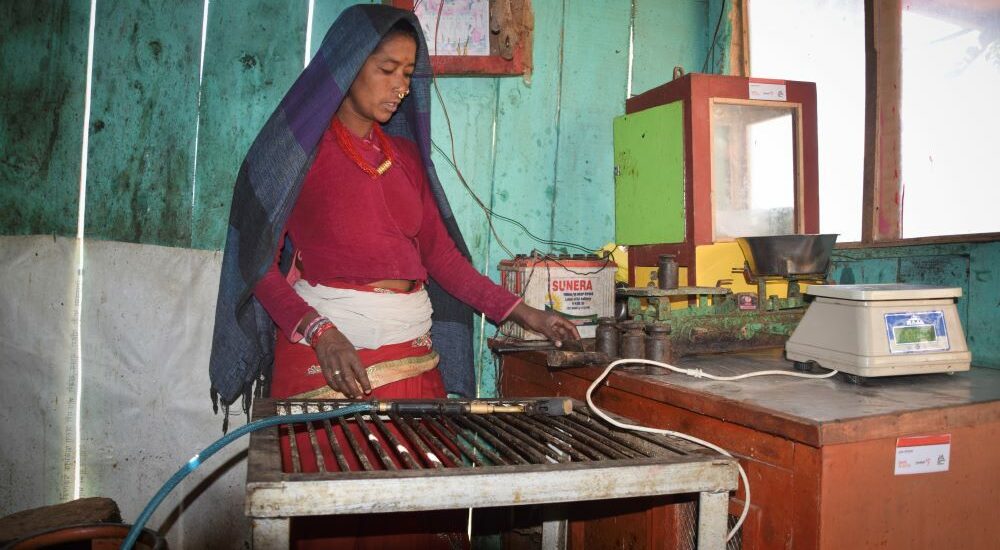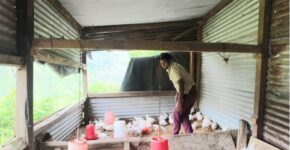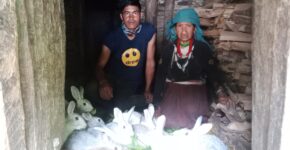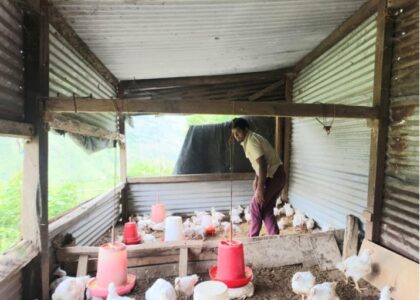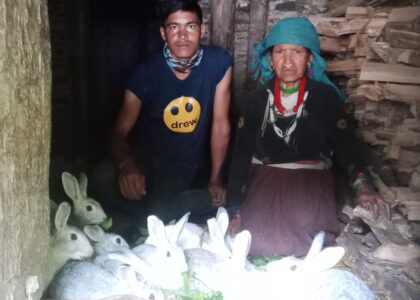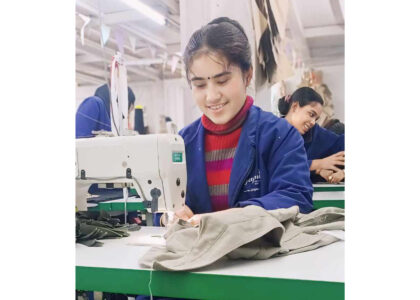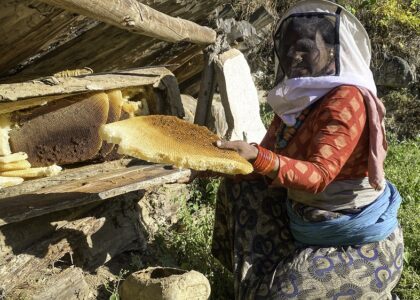The market in Kanakasundari Municipality in Jumla is thriving. Although most houses in the market are traditionally constructed with mud and stone, the new buildings are modern with concrete walls made of rod, and cement. Nevertheless, human life and civilization have taken another form through urbanization. This open economy and independent market have become globalized today. In the midst of Kanakasundari-6, in the market of Goruchaur, there is a fresh (meat) house owned by Premkali Kami (32). While the official name of the business is Prem Fresh House, it is commonly known as ‘Chwaanche Fresh House’.
She initiated her fresh house business four years ago. At that time, she started a business in a traditional setting with very little capital. Although she wanted to expand her business within the local market, the lack of investment did not favor her. With the support of the Srijana Project, aiming to create employment opportunities locally, she joined hands with the project. With the assistance of the project, she improved and expanded her fresh house business.
The project contributed by renovating her fresh house and providing assistance to buy materials such as tables, drawers, racks, water drums, deep freezers, and weighing machines. This assistance significantly enhanced the external and internal beauty of her fresh house. As a result, her fresh house business flourished. She currently sells an average of 15 kilograms of chicken daily. She has experience selling up to 100 kilograms during festivals like Dashain and Tihar. She is very happy with the progress of her business with the support of the Srijana Project.
Four years ago, she worked in India until the COVID-19 pandemic struck. After facing difficulties returning to Nepal, she decided to settle back in her village. She expressed her contentment, saying, “I used to work as a servant in India, begging for a living. Now, I am very happy to earn a livelihood by working in my own place.” Besides running her fresh house business, she actively engages in various daily labor activities, such as fetching firewood, sandblasting, and other tasks.
The income from Fresh House has enabled her to support the education and household expenses of her husband and two children. Her husband also supports her in her work. Chicken comes in a vehicle from Surkhet to be sold out at the Fresh House. She mentions that the supply of chicken from Surkhet is not reliable, as sometimes chickens do not arrive on time, and she faces difficulty meeting the demands of her customers. Hence, she wishes to get a chicken supply from her village itself in the near future. Premkali, who spends most of her time in the fresh house from morning to evening, expresses her satisfaction with her life experiences and joys in the fresh house.
Goruchaur Bazaar and its surroundings consist of settlements of Brahmins, Chhetris, and Dalits, all living together equally. Premkali herself belongs to the Dalit community and has experienced the inhumane practices of untouchability prevalent in Nepali society. Overcoming those hardships, she has brought positive changes to the present society. Although she faced discrimination and prejudice in the past, her contribution to changing the social structure is evident. She acknowledges the support of her fresh house business in breaking down caste-based discrimination. She says, “In my fresh house, there is no such thing as Brahmin, Chhetri, or Dalit; all people from different castes and communities buy chickens from me. The society and the perception of people have changed much more than before.”
Overall, Fresh House has not only become a source of income for Premkali Kami but also plays a role in social transformation by breaking down discriminatory practices in the community.


